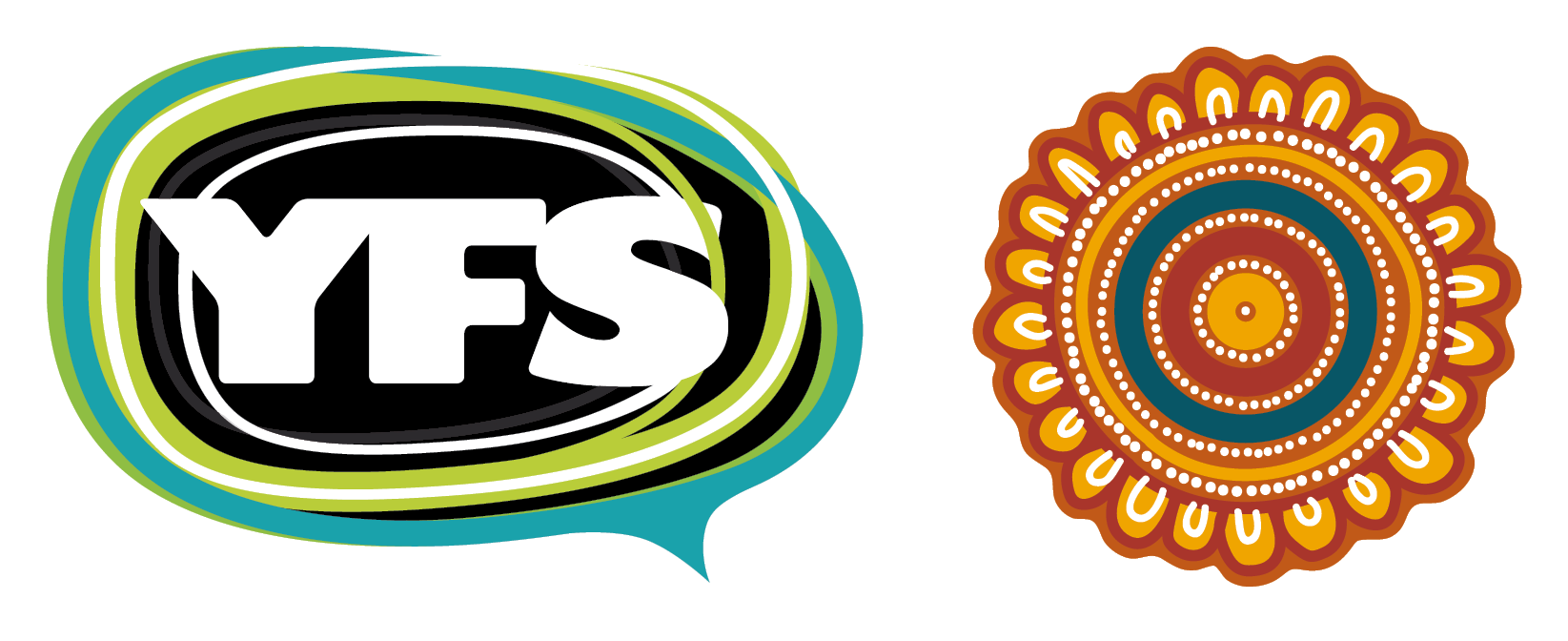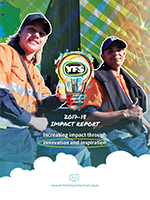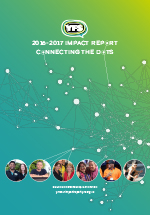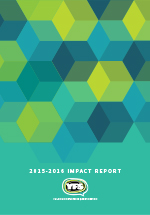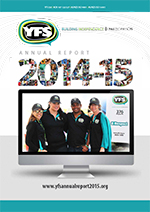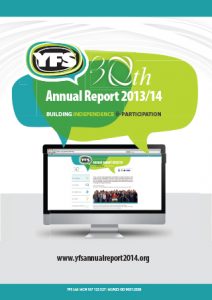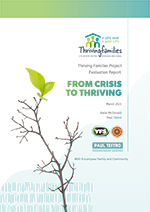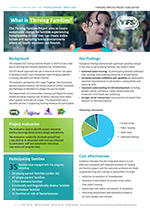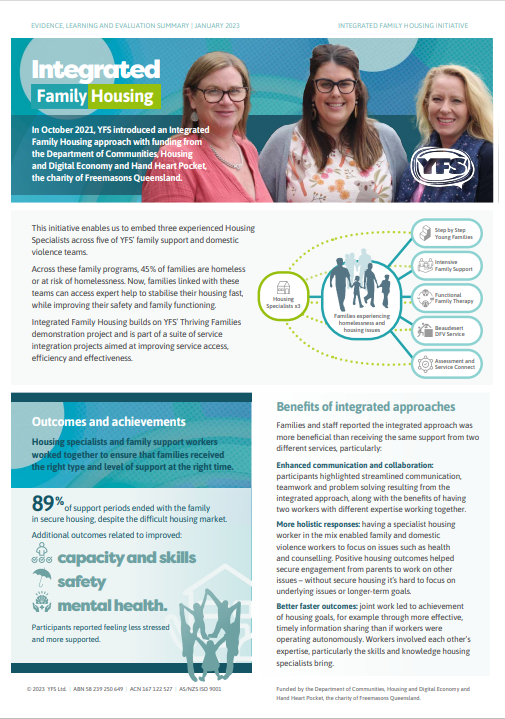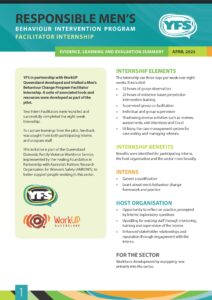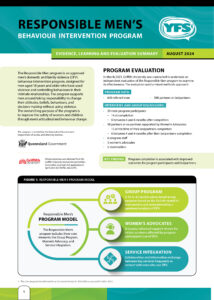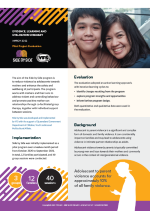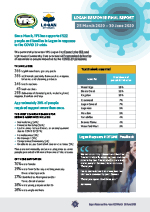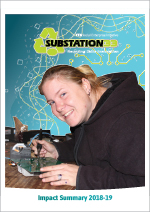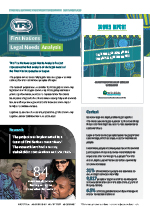Our
impact
We support each other and stand our ground when necessary to help Logan people thrive, not just survive.
Take a look at our Impact Reports for details on how, over the years, our approach has achieved real, long-term change for people in Logan.
Watch the YFS video for more information about the work that we do.
2023-24: Our Place in The Community
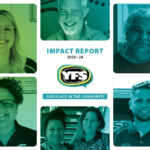 In 2023-24, our commitment to being a vital part of the community drove YFS to expand services and develop new programs to meet growing needs
In 2023-24, our commitment to being a vital part of the community drove YFS to expand services and develop new programs to meet growing needs
Read our 2023-24 Impact Report
2022-23: Doing what it takes
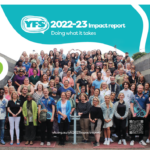 In 2022-23, across the organisation, we found creative ways to do what it takes to support the people we work with.
In 2022-23, across the organisation, we found creative ways to do what it takes to support the people we work with.
Read our 2022-23 Impact Report
2021-22: Working together
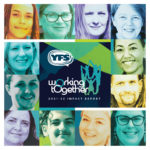 In 2021-22 we deepened our integration efforts to provide holistic services that back people to thrive. We also advanced our partnerships, because changing lives, improving systems and influencing social change relies on collaboration.
In 2021-22 we deepened our integration efforts to provide holistic services that back people to thrive. We also advanced our partnerships, because changing lives, improving systems and influencing social change relies on collaboration.
Read our 2021-22 Impact Report
2020-21: A year of change
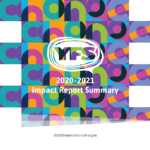 In 2020-21 across YFS we backed more than 7,000 people to create positive change in their lives, from moving into a stable home to improving their resilience. We also continued to drive change for our organisation, adapting to the emerging challenges of the coronavirus pandemic, and to growth and change in our region.
In 2020-21 across YFS we backed more than 7,000 people to create positive change in their lives, from moving into a stable home to improving their resilience. We also continued to drive change for our organisation, adapting to the emerging challenges of the coronavirus pandemic, and to growth and change in our region.
Read our 2020-21 Impact Report
2019-20: Backing our community
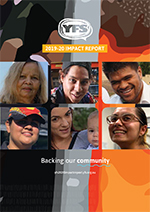 YFS’ key role in our community has never been more evident than in 2019-20. Throughout the year, we invested in our community through innovative initiatives and local partnerships.
YFS’ key role in our community has never been more evident than in 2019-20. Throughout the year, we invested in our community through innovative initiatives and local partnerships.
When the COVID-19 crisis hit, we adapted swiftly to meet local needs, support Logan people and provide leadership where needed.
2018-19: Learning, growing, thriving
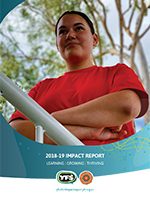 2018-19 was a year of learning for YFS. We developed a new Strategic Plan which commits us to research and development to help us back vulnerable people to overcome adversity and thrive. This Impact Report outlines our progress to date.
2018-19 was a year of learning for YFS. We developed a new Strategic Plan which commits us to research and development to help us back vulnerable people to overcome adversity and thrive. This Impact Report outlines our progress to date.
Previous YFS Impact Reports
Thriving young families – research, evaluation and learning papers
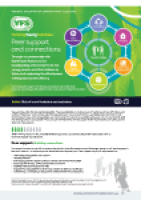 Through our partnership with Hand Heart Pocket we are investigating what works for at-risk young parents and their children to thrive, and evaluating the effectiveness of integrated service delivery. Our integration demonstration project brings together family workers, a housing specialist, a counsellor, an education and employment mentor and a connections coordinator. This multi-disciplinary team backs young families, with support tailored to each family’s needs.
Through our partnership with Hand Heart Pocket we are investigating what works for at-risk young parents and their children to thrive, and evaluating the effectiveness of integrated service delivery. Our integration demonstration project brings together family workers, a housing specialist, a counsellor, an education and employment mentor and a connections coordinator. This multi-disciplinary team backs young families, with support tailored to each family’s needs.
Read our Thriving young families research, evaluation and learning papers
Functional Family Therapy – Child Welfare program evaluation (October 2020)
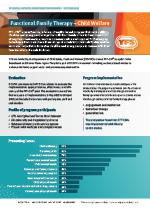 The FFT–CW® evaluation conducted by ARTD Consultants found that the model was implemented with fidelity and resulted in increased skills (such as emotional regulation, parenting skills and calming strategies), reduced mental distress for both parents and children and improved family relationships.
The FFT–CW® evaluation conducted by ARTD Consultants found that the model was implemented with fidelity and resulted in increased skills (such as emotional regulation, parenting skills and calming strategies), reduced mental distress for both parents and children and improved family relationships.
96% of young people and 94% of parents felt that parenting skills were better as a result of the intervention.
Thriving Families Project evaluation and project summary (March 2021)
The Thriving Families Project provides a fast response to the housing crisis coupled with ongoing support to address underlying and emerging issues. The team worked with 35 families over its first 18 months. 32 families stabilised their housing. From the foundation of stable housing, all participants improved self-esteem, coping ability and practical skills as well as improved understanding of child development and stronger social connections.
The evaluation indicates the program is efficient and effective in providing integrated housing and family support services and could potentially reduce the burden on government services through early intervention.
Sure Steps program evaluation (May 2020)
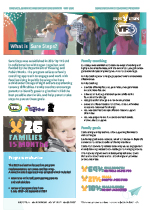 Sure Steps was established to test new ways of working with highly vulnerable families, with the aim of disrupting the intergenerational cycle of poverty, trauma and disadvantage.
Sure Steps was established to test new ways of working with highly vulnerable families, with the aim of disrupting the intergenerational cycle of poverty, trauma and disadvantage.
A 2019 program evaluation found Sure Step’s family focused, parent-led, strengths-based and solutions-focused family coaching model effective. As a result, a 32% improvement in overall family wellbeing was recorded.
Accessing service systems project (September 2019)
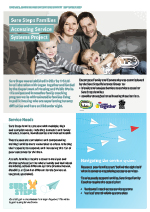 Logan Together commissioned Encompass Family and Community to identify and analyse barriers to service access for Sure Steps’ families and consider strategies for addressing those barriers.
Logan Together commissioned Encompass Family and Community to identify and analyse barriers to service access for Sure Steps’ families and consider strategies for addressing those barriers.
For families to access the support they need, services must exist, be visible, available and responsive to families’ needs.
Encompass identified barriers at each of these levels.
Step by Step Program Evaluation (July 2019)
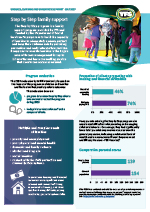 The 2019 evaluation by Griffith University focused on the impact of the program on children and families and the factors that predict positive outcomes.
The 2019 evaluation by Griffith University focused on the impact of the program on children and families and the factors that predict positive outcomes.
A 31% improvement was recorded in client outcomes, particularly in relation to housing, skills, community participation, knowledge and access to information, and financial resilience. Clients described feeling happier, hopeful, resilient, and more capable to deal with challenges.
Thriving Families Project evidence base (May 2019)
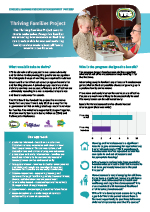 The Thriving Families Project aims to create sustainable change for families experiencing homelessness so that they can create stable homes and nurturing family environments where all family members can flourish.
The Thriving Families Project aims to create sustainable change for families experiencing homelessness so that they can create stable homes and nurturing family environments where all family members can flourish.
A key element of the Project model is the intentional skill building component designed to ‘bridge the gap’ and shift the emphasis from addressing adversity and crisis towards strengthening capacity.
Youthlink program evaluation (April 2019)
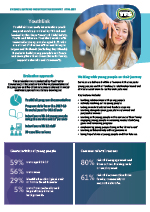 The Youthlink evaluation conducted by Paul Testro Consultancy focused on program implementation and outcomes. Findings indicate positive outcomes from program participation.
The Youthlink evaluation conducted by Paul Testro Consultancy focused on program implementation and outcomes. Findings indicate positive outcomes from program participation.
79% of young people improved their circumstances, connections and skills over time. The largest improvements were in relation to schooling or work mental health and housing.
Youth services overview and impact (May 2021)
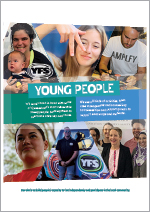 YFS works hand in hand with some of Queensland’s most vulnerable young people, backing them to overcome adversity and thrive. In 2020 YFS supported more than 1,100 young people, reached 2,200 though community education and events and engaged 54,000 people through social media. Key outcomes across programs included 71% of homeless young people supported into stable accommodation (Housing First), 77% of young people experienced improvements in their wellbeing (YouthLink and Next Step Plus). 86% of young families improved their circumstances (Step by Step Young Families).
YFS works hand in hand with some of Queensland’s most vulnerable young people, backing them to overcome adversity and thrive. In 2020 YFS supported more than 1,100 young people, reached 2,200 though community education and events and engaged 54,000 people through social media. Key outcomes across programs included 71% of homeless young people supported into stable accommodation (Housing First), 77% of young people experienced improvements in their wellbeing (YouthLink and Next Step Plus). 86% of young families improved their circumstances (Step by Step Young Families).
Resolve evidence, learning and evaluation summary (June 2023)
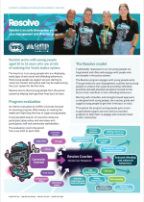 Resolve works with young people aged 10 to 16 years who are at risk of entering the Youth Justice system.
Resolve works with young people aged 10 to 16 years who are at risk of entering the Youth Justice system.
An interim evaluation of the program by Griffith University found Resolve is effective in creating positive change including improved connections, life skills, trust, resilience, and hopefulness. There was also a significant reduction in risk levels related to housing, drug and alcohol use and anti-social and offending behaviours.
Home and Healthy Evaluation summary (May 2024)
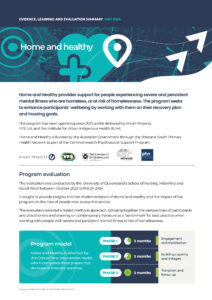
Home and Healthy provides support for people experiencing severe and persistent mental illness who are homeless, or at risk of homelessness. The program seeks
to enhance participants’ wellbeing by working with them on their recovery plan
and housing goals.
The program has been operating since 2022 and is delivered by Micah Projects,
YFS Ltd, and the Institute for Urban Indigenous Health (IUIH).
Integrated Family Housing (January 2023)
Building on the Thriving Families demonstration project, the Integrated Family Housing approach embeds experienced housing specialists across five of YFS’ family support and domestic violence teams. Families linked with these teams can access expert help to stabilise their housing fast, while improving their safety and family functioning.
Despite the difficult housing market, in its first year the Integrated Family Housing initiative has achieved great outcomes for families.
Housing review (June 2020)
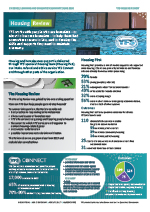 Housing is a significant issue across YFS. Almost half of YFS clients present initially with a housing issue.
Housing is a significant issue across YFS. Almost half of YFS clients present initially with a housing issue.
In 2019, YFS supported almost 700 clients to improve their housing situation.
The Housing review conducted by 99 Consulting highlighted the effectiveness of housing specialists and identified opportunities for greater collaboration.
Responsible Men’s Facilitator Internship (April 2025)
YFS in partnership with WorkUP Queensland developed and trialled a Men’s Behaviour Change Program Facilitator Internship. A suite of associated tools and resources were developed as part of the pilot.
Two Intern Facilitators were recruited and successfully completed the eight-week Internship.
To capture learnings from the pilot, feedbacknwas sought from both participating Interns and program staff.
This initiative is part of the Queensland Domestic Family Violence Workforce Service, implemented by the Healing Foundation in Partnership with Australia’s Nations Research Organisation for Women’s Safety (ANROWS), to better support people working in this sector.
Project RITA (Recognise & Interrupt Technology Abuse) Summary (January 2025)
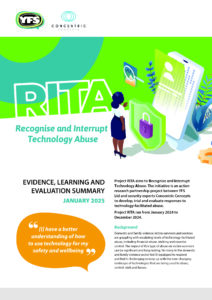 Project RITA aims to Recognise and Interrupt Technology Abuse. The initiative is an action research partnership project between YFS Ltd and security experts Concentric Concepts to develop, trial and evaluate responses to technology-facilitated abuse.
Project RITA aims to Recognise and Interrupt Technology Abuse. The initiative is an action research partnership project between YFS Ltd and security experts Concentric Concepts to develop, trial and evaluate responses to technology-facilitated abuse.
Project RITA ran from January 2024 to December 2024.
Responsible Men’s Behavioural Intervention Summary (August 2024)
The Responsible Men’s program assists men who have used violence or controlling behaviours in relationships, helping them understand the impact of their actions and fostering positive, respectful relationships.
The evaluation by Griffith University has confirmed that YFS’ Responsible Men’s Behaviour Intervention Program is making a positive impact in the lives of men, women and families impacted by domestic and family violence. The evaluation highlighted that completion of the Responsible Men program is associated with marked improvements across several domains, including men’s understanding of domestic and family violence, improved self-regulation, and communication skills.
Side by side evidence, learning and evaluation summary (March 2022)
The aim of the Side by Side program is to reduce violence by adolescents towards mothers and enhance the safety and wellbeing of participants. The program works with mother and their sons to address violent behaviour.
Positive changes resulting from the program included a reduction in young people’s use of violent and controlling behaviour, enhanced safety of mothers, and increased skills and strategies for managing adolescent behaviour.
Men4Respect pilot evaluation (June 2020)
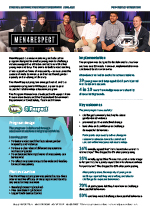 The Men4Respect program was piloted across three sites to test the effectiveness of the program and identify any areas for improvement.
The Men4Respect program was piloted across three sites to test the effectiveness of the program and identify any areas for improvement.
The evaluation found the pilot program successfully challenged commonly held myths about gender-based violence, promoted positive attitudinal change, built skills and confidence to challenge disrespectful behaviours.
Project Hera Program Evaluation (July 2019)
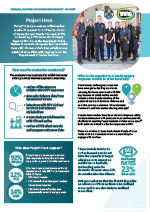 An evaluation by Griffith University found that Project Hera is meeting its objective of improving safety and wellbeing for victims/survivors of domestic violence.
An evaluation by Griffith University found that Project Hera is meeting its objective of improving safety and wellbeing for victims/survivors of domestic violence.
82% of clients showed improvements in being safe and/or protected from harm.
In addition, improvements were recorded in relation to housing, financial situation, social connectedness, physical and mental health and family functioning.
R4Respect research (May 2019)
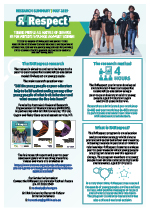 With funding from Australia’s National Research Organisation for Women’s Safety (ANROWS), Griffith University evaluated the impact of R4Respect. The research found R4Respect’s peer-to-peer education model effectively engaged young people as agents of change. R4Respect showed potential to positively influence young people’s behaviour, with 86% of participants agreeing to the statement: “Things I learnt in the program would help me act with greater respect in the future.”
With funding from Australia’s National Research Organisation for Women’s Safety (ANROWS), Griffith University evaluated the impact of R4Respect. The research found R4Respect’s peer-to-peer education model effectively engaged young people as agents of change. R4Respect showed potential to positively influence young people’s behaviour, with 86% of participants agreeing to the statement: “Things I learnt in the program would help me act with greater respect in the future.”
YFS Financial Capability and Wellbeing Hub Review (May 2019)
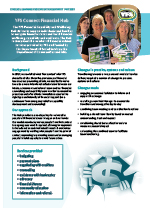 In 2017, YFS transitioned towards a more intentional collaboration between our intake, assessment and referral team (YFS Connect) and our financial counselling and capability team.
In 2017, YFS transitioned towards a more intentional collaboration between our intake, assessment and referral team (YFS Connect) and our financial counselling and capability team.
A 2019 review found that the integrated hub model led to greater efficiency and effectiveness, resulting in improved outcomes for clients.
The model is designed to address the immediate financial crisis and build financial capacity. As a result, 83% of clients increased their financial resilience.
COVID-19 support (June 2020)
Between March and June 2020, YFS, in partnership with Logan City Council, the SES and Lighthouse Community Care, supported 522 people and families in Logan in response to the COVID 19 crisis.
Over 650 customised packs of essentials were delivered to those self-isolating or experiencing financial hardship.
Spark evidence, learning and evaluation summary (Jan 2023)
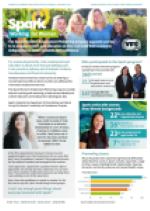 The Spark Women’s Employment Mentoring program provides tailored coaching and mentoring to help women identify and achieve education and employment related goals, fast.
The Spark Women’s Employment Mentoring program provides tailored coaching and mentoring to help women identify and achieve education and employment related goals, fast.
In the 18 months since the program started Spark worked with 360 women, 213 through one-on-one mentoring and 147 through skill building workshops.
96% of participants improved work readiness, 48% obtained employment and 33% enrolled in education or training.
Substation33 Impact Summary (2018-19)
Substation33 offered 623 people opportunities to learn skills in a supportive work environment in 2018-19.
Through 76,527 hours of work, participants learned to disassemble electronic waste and create value-added products like road flooding warning signs and water quality meters.
Economic modelling by Logan City Council calculated the 10 full-time equivalent jobs at Substation33 add $4.25 million to Australia’s Output, when considering the flow-on effects of economic activity.
Substation33 increases Logan City’s Gross Regional Product by $1.2 million each year, and Australia’s Gross Domestic Product by $1.92 million.
First Nations Legal Needs Analysis (September 2020)
The First Nations Legal Needs Analysis Project represents the first analysis of the legal community education needs of the First Nations peoples of Logan.
Implemented by a team of First Nations researchers, the research identified legal needs and gaps in service delivery for the First Nations peoples of Logan.
